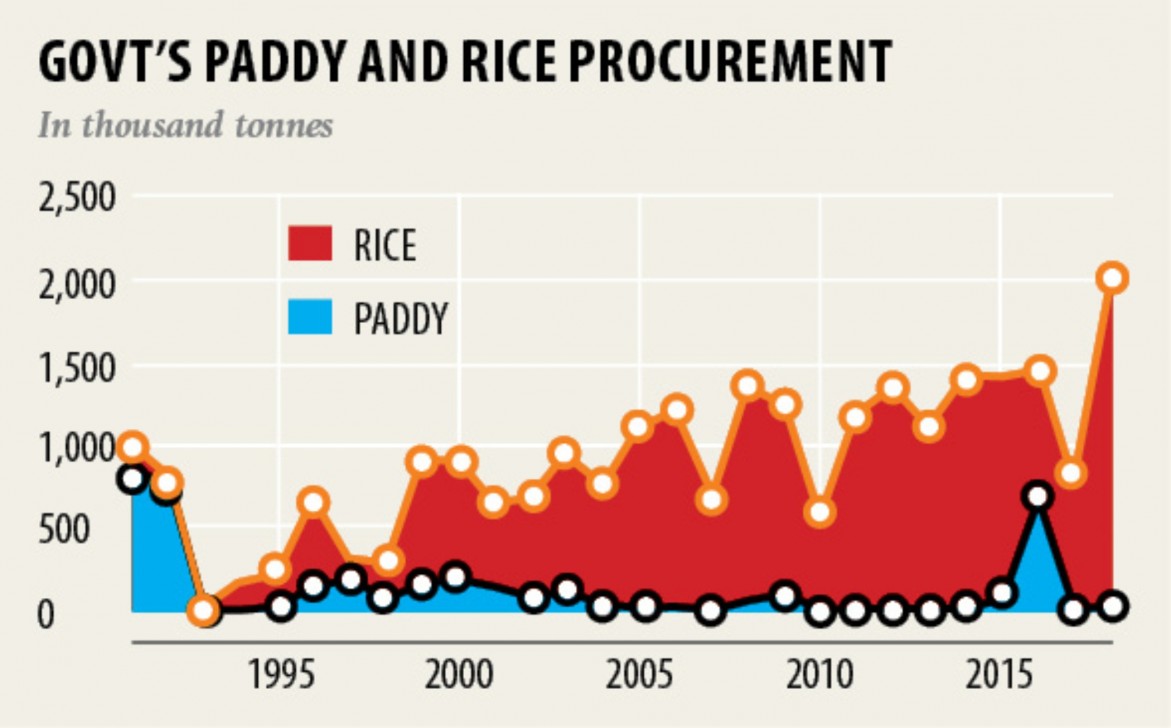Govt to build 200 paddy silos to ensure fair prices

The food ministry plans to set up 200 paddy silos for about Tk 6,000 crore in order to buy increased amounts of grains from growers with a view to protecting them from losses in case of good harvest, said a top official.
The food office has already sent a project proposal to the planning ministry for establishing the silos that will have paddy drying, storing and other required facilities, said Mosammat Nazmanara Khanum, director general of the Directorate General of Food (DG Food).
The initiative comes after rising calls from various sections, including farmers, activists groups and analysts, to ensure fair prices for producers.
Even though the government officially aims to give incentive prices to farmers, it has focused less on paddy purchases directly from producers for nearly three decades, according to food procure-ment data.
Since 1991, the food office has bought 15 percent of its total annual purchase of the staple crop as paddy from growers, and the rest 85 percent of the total annual purchase from rice from millers, food ministry data showed.
This year, demands to buy paddy in higher volumes got louder in the face of freefall of the prices of the staple because of the good yields in recent seasons.
Low prices still persist with harvesting of the second biggest crop aman beginning next month.
Currently, the DG Food does not have any paddy silo and it stores paddy in rice godowns, risking pest contamination from paddy to rice, Khanum said.
“Rice has shorter shelf life. Pest control becomes necessary if we cannot distribute them in three months.”
The quality of rice deteriorates if it is stored in godowns longer than that.
“But paddy can be stored for up to three years and we will get fresh rice after milling. Besides, farmers will not have to return with their produce even if they bring paddy with high moisture. There will be driers for drying in every silo,” Khanum said.
The government does not buy paddy if the moisture content is more than 14 percent as per its current procurement practices.
As planned, the paddy silos to be built across the country will have a combined capacity of storing 10 lakh tonnes of the grain. Each silo will have 5,000 tonnes of paddy storage, the director general said.
“We will be able to buy more paddy from growers. And our higher purchase will ensure fair prices for them.”
At present, the DG Food has 21 lakh tonnes capacity but it can actually store 19.60 lakh tonnes of grain. It is constructing silos and godowns to increase the storage capacity to 27 lakh tonnes.
The storage capacity will increase by 2 lakh tonnes by December next year owing to the construction new silos, according to Khanum.
“As we are producing more, we will have to buy more and distribute more cereal under various public food grain distribution schemes,” she added.
Food grain stocks at public warehouses stood at 17.08 lakh tonnes on October 15, up 17 percent year-on-year, food ministry data showed.
